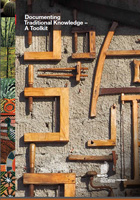Documentation of Traditional Knowledge and Traditional Cultural Expressions
The documentation of traditional knowledge (TK) and traditional cultural expressions (TCEs) is a process in which TK and TCEs are identified, collected, organized, registered or recorded.
From an intellectual property (IP) perspective, a documentation exercise needs to be undertaken within a framework of sound objectives and principles, and guided by a clear assessment of the risks and potential benefits, particularly for indigenous peoples and local communities (IPLCs).
Upon request, WIPO provides information on the IP implications of documenting TK and TCEs to governments, IPLCs and cultural institutions wishing or required to document TK and TCEs.
